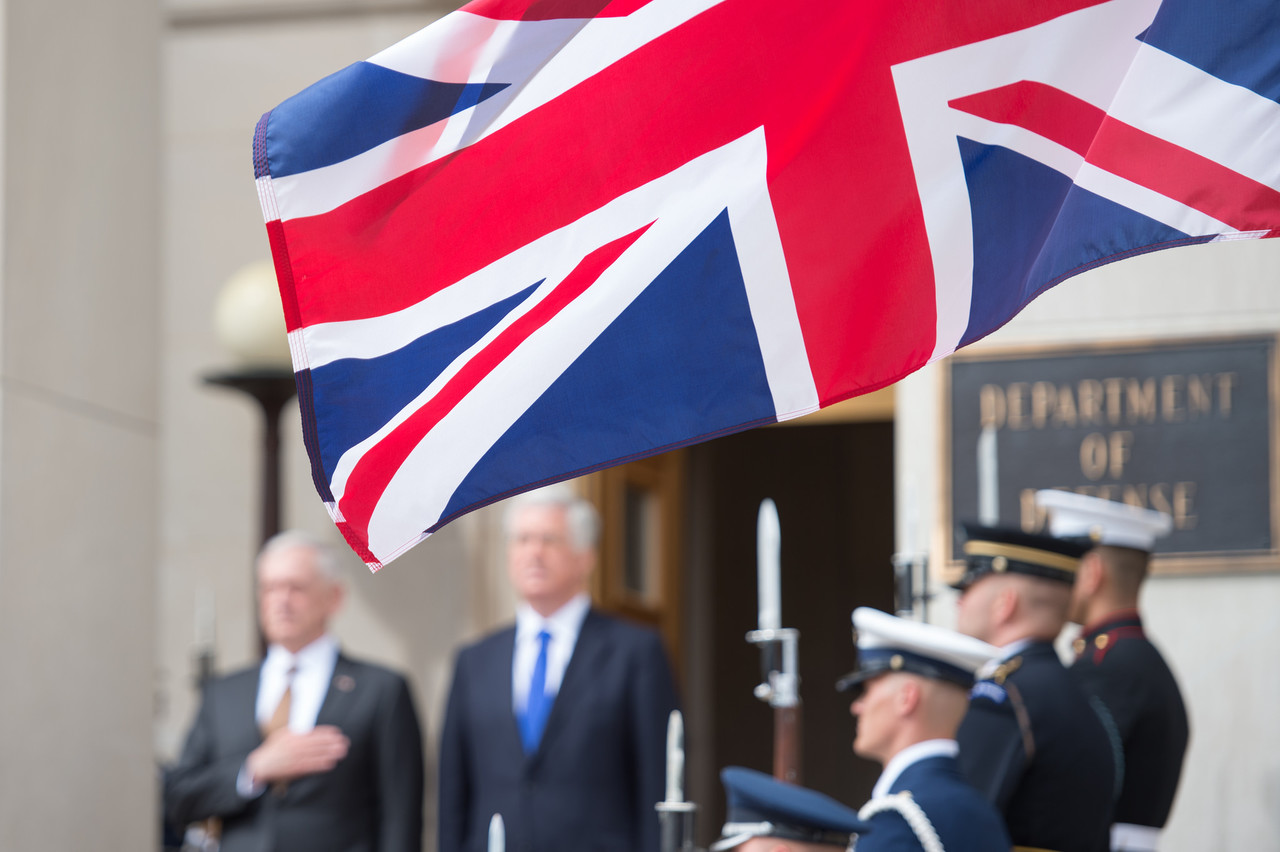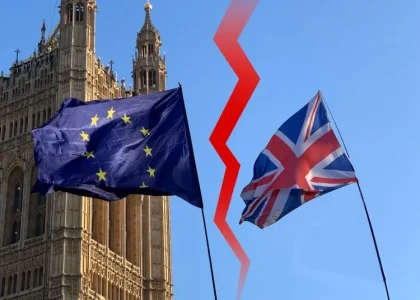It took three arduous years of negotiation between the European Union and the United Kingdom to conclude a withdrawal agreement. However, the ramifications from the loss of one of the EU’s strongest diplomatic and military members are underappreciated. The political declaration on the future relationship features only vague commitment from both sides to seek cooperation in matters of security.
Following the invocation of Article 50 in March 2017, the untangling of Britain’s relationship with the EU27 has largely been reported on as a mission to break away from the trading bloc, rarely highlighting the security implications of such an unprecedented move. Whilst the interests of states often clash in intense trade negotiations, the sphere of security can often featured shared values, goals, and threats that demand close partnership and consultation on both sides of the negotiating table. It is therefore surprising that such a complex issue has been relegated behind the backdrop of trading and economic concerns, particularly as key figures in the UK’s security sphere stressed the value of EU cooperation in defending Britain’s intelligence interests
The UK has always had a unique relationship with the European project, not only due to its geographic separation from the continent but also in its ‘outward looking’ nature as a former imperial power. This has historically been at the expense of closer European security cooperation, with British policy actors frequently blocking defence initiatives within the EU, potentially damaging their chances of a ‘special status’ arrangement in any future EU defence institutions. As attempts are made to strengthen the ‘special relationship’ with the United States and rekindle the Commonwealth into a multifaceted and comprehensive partnership, it is no wonder that the EU has remained sceptical of British desires for privileged status in security initiatives to this day.
As one of the Union’s strongest security actors, the EU simply cannot afford to allow the UK to distance itself from continental security arrangements. Boasting the EU’s largest military budget, a permanent seat on the United Nations Security Council, as well as one of only two EU states with ‘full-spectrum’ military capabilities, the UK offers credibility to EU foreign policy and a vast network from which to conduct international diplomatic missions. It is unwise to expect the UK to remain a fully-fledged member of future EU security policy, but it is also impossible to deny them a place at the table if the EU wishes to project their values and interests beyond the remit of the European Neighbourhood Policy. Other avenues for cooperation may well present themselves as politically acceptable options for both sides in the realm of cooperation, perhaps in existing frameworks like NATO which has provided the foundations for European security cooperation for decades.
By this same token, British policy makers must also accept that Europe remains a strong component of their security sphere which demands engagement. This is particularly true with the likes of France. Following Britain’s departure, France will serve as Britain’s primary continental security partner, not least because of their status as a ‘full-spectrum’ military power but also as a historically crucial bilateral security partner with the UK.President Macron has already sought to include Britain in his ‘European Intervention Initiative’ despite Brexit, building upon the dynamic and outward looking approach that both states hold in their international security outlook.
Whilst it is true that bilateral relationships between the UK and individual member-states of the EU are forming, it is vital to understand that this is not being conducted in a vacuum.The EU is already taking steps towards the development of an independent security platform without the UK’s presence or veto, thus shaping the wider considerations made by member states regarding their own security policies.Defence remains an intergovernmental area of cooperation, however this has not prevented numerous mechanisms surrounding security concerns from being developed, notably in the form of PESCO, CARD, and a European Defence Fund. PESCO serves as the beginnings of greater integration amongst the EU’s national armed forces. CARD too acts as the basis for monitoring and coordinating defence spending amongst national governments. The EDF seeks to improve interoperability between national armed forces. All three bodies present key hallmarks in future development of EU based defence capabilities, of which the UK would be wise to consider them in any future defence planning.
However much the EU wishes to assert itself as an independent security actor, particularly from the likes of the United States, it must also accept that the US remains a key global player with shared values and perhaps the most comprehensive international security network of any state. Following divisive comments from President Macron over the future of institutions like NATO, many smaller states in Eastern Europe as well as the Baltic states have expressed concern over the deterioration of EU-US relations. Even leading European figures like Angela Merkel have condemned such comments as an attempt to push a resurgent Gaullist agenda onto Europe. Britain could therefore serve as a buffer state between EU desires for greater security independence and US desires to maintain a presence in the European sphere. Old French suspicions of the UK as an ‘American Trojan horse’ will undoubtably see a resurgence, however the potential to tap into the UK-US ‘special relationship’ is ever present and should be considered in any analysis of the future EU security network.
The UK-EU relationship in matters of security and defence is at an impasse, one which both sides cannot afford to ignore if they are to serve the interests of their citizens. Whilst rarely mentioned in media circles, this issue has plagued policy makers at both national and supranational levels across the EU and UK respectively. The future security relationship remains an unknown. A return to British Atlanticism? A strong and comprehensive intertwining of the UK into EU institutions? A consultation-based strategy on a case-by-case basis? Whatever the case may be, neither side can ignore the issue for much longer. Whilst the withdrawal agreement has been enacted, the negotiations on the future relationship have only just begun.
Jamie Underwood is a UEA Politics graduate who wrote this piece as part of the final year module ‘Britain and Europe’ run by Pierre Bocquillon.





